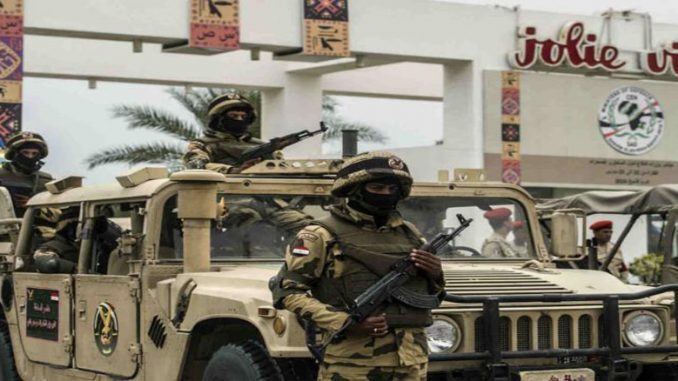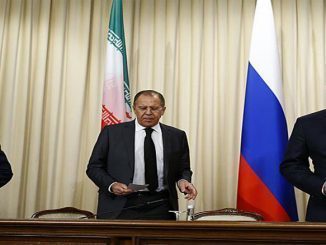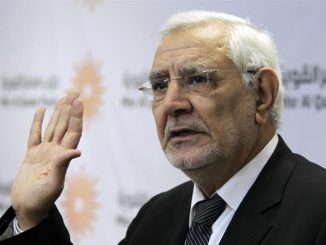
Lufthansa and British Airways canceled flights to Cairo over the weekend, citing security concerns. Although they were reticent with details, the situation in Egypt, and particularly in North Sinai, is indeed unstable.
The airlines’ decisions on Saturday came as a surprise: Just a few minutes after British Airways, Germany’s Lufthansa also canceled its flights to Cairo. Safety concerns were cited by the companies as the reason, but neither airline initially wanted to disclose details or background information. The security situation in Cairo was “unclear,” a Lufthansa representative told DW.
Unlike British Airways, however, Lufthansa resumed operations on Sunday. British Airways plans to stop its flights to Cairo for an entire week — the safety of passengers and crew members has top priority, according to the company.
The announcements made by British Airways and Lufthansa are a setback for Egypt’s tourism industry, which had slowly begun to recover after years of stagnation. Many people avoided the popular holiday destination after the protests in the wake of the Arab Spring and the 2014 military coup and several attacks on foreigners.
Sami al-Hifnawi, chairman of the Egyptian aviation authority, criticized the airlines’ decision as politically motivated. “Every time Egypt recovers, there is an artificially induced crisis,” he said in a TV interview.
Stephan Roll of the Berlin-based German Institute for International and Security Affairs (SWP) said, however, that he considered any political motivation out of the question, adding that Egyptian authorities were quick to portray themselves as victims in these kinds of situations.
Damage to tourism
In fact, the security situation in Egypt has been tense for some time. In May, several people were injured in an attack on a tourist bus near the pyramids of Giza. At the end of December, four people were killed in another attack on a bus. These attacks hit Egypt hard, partly because the tourism industry is one of the country’s most important sources of revenue.
Why the flights to Cairo were really canceled remains unclear. Presumably, “urgent intelligence” led to the airlines’ decisions to suspend the flights for a short time, Roll said, with the pause in operations being used to improve security infrastructure at airports.
It is not the first time Egypt has made headlines concerning aviation safety. In 2015, the British Foreign Office issued a travel warning for flights to Sharm el-Sheikh, citing the crash of a Russian passenger plane that took off from there caused by the explosion of a bomb smuggled on board. The attack, which killed all 224 passengers and crew, led to discussions about the lax security measures at Egypt’s airports. Russian airlines have yet to resume flights to any Egyptian airports.
State of emergency on the Sinai Peninsula
The security situation in the northeastern part of Egypt is particularly precarious, according to Roll. “You have to distinguish between Sinai and the rest of the country,” he said. “Civil war-like condition prevail in Sinai and have done for years.” He said that an offshoot of the “Islamic State” (IS) terror militia was active in North Sinai that has repeatedly claimed attacks on Egyptian security forces and the Christian minority.
Six civilians were reportedly beheaded in North Sinai just a few days ago. The attackers were said to have kidnapped three more people and fled into the desert. Shortly afterward, the Egyptian Air Force announced that it had killed 20 IS supporters on the peninsula.
Assessing the security situation in Sinai is difficult, Roll says, as there is an absolute news blackout and no objective information from the region. “The fact is that there are always reports of deaths of alleged terrorists, but it is unclear whether they are all terrorists,” the SWP expert told DW. He said, however, that deaths were also reported among Egyptian security forces. The fact that they continue to suffer rather high losses indicated that they “do not have the situation in the North Sinai under control at all,” Roll said.
Human rights violations
Human rights organizations have criticized Egypt’s army and police for conducting their anti-terrorist campaign without regard to civilian casualties. Human Rights Watch (HRW) has documented arbitrary arrests, extrajudicial killings, collective punishments, evictions and disappearances, saying that some of the violations amounted to war crimes.
Between 2014 and June 2018, more than 3,000 alleged Islamists and 1,200 security forces were killed in fighting, according to HRW. Investigations have shown, however, that the Egyptian authorities incorrectly listed hundreds of injured or killed civilians as insurgents. There were also more than 12,000 arrests, HRW said.
The government bears great responsibility for the current state of security in the country, Roll said. He even sees one reason for the unstable situation as being the fact that “since 2013, the Egyptian government has used absolutely disproportionate violence against large sections of civil society and the opposition without observing any international conventions.” According to him, this state repression has led to people becoming increasingly radicalized.
Altogether, Stephan Roll considers there to be an ongoing latent security risk in the country. In view of this, he called that German Foreign Ministry’s current partial travel advisory rather “conservative.”



